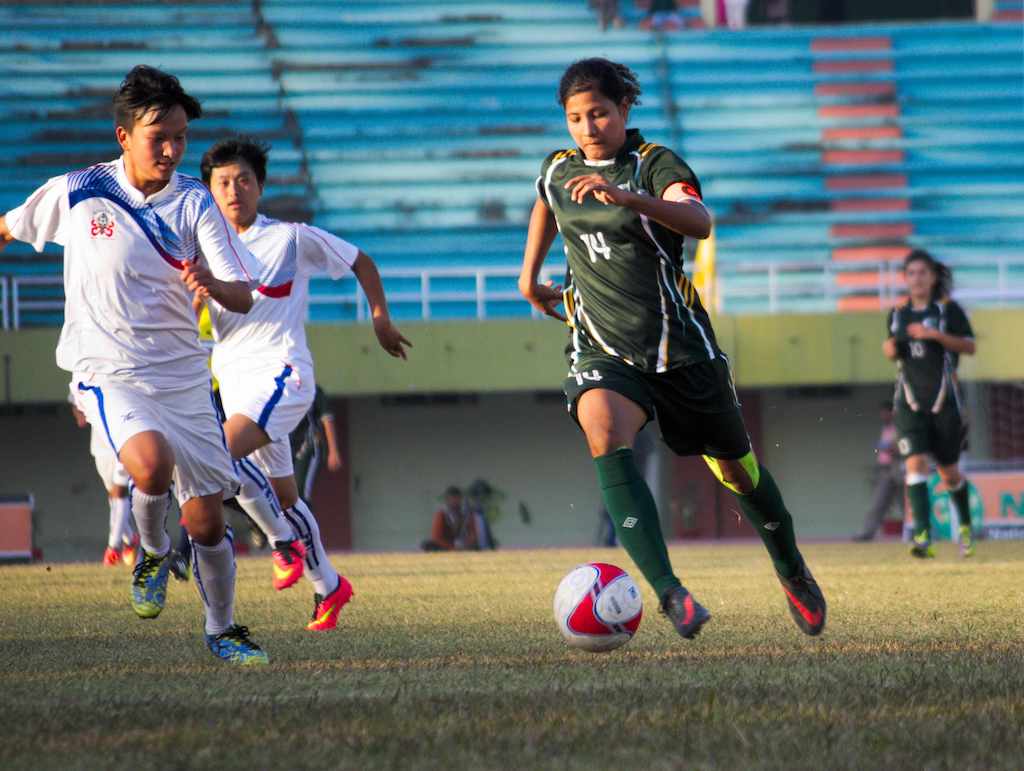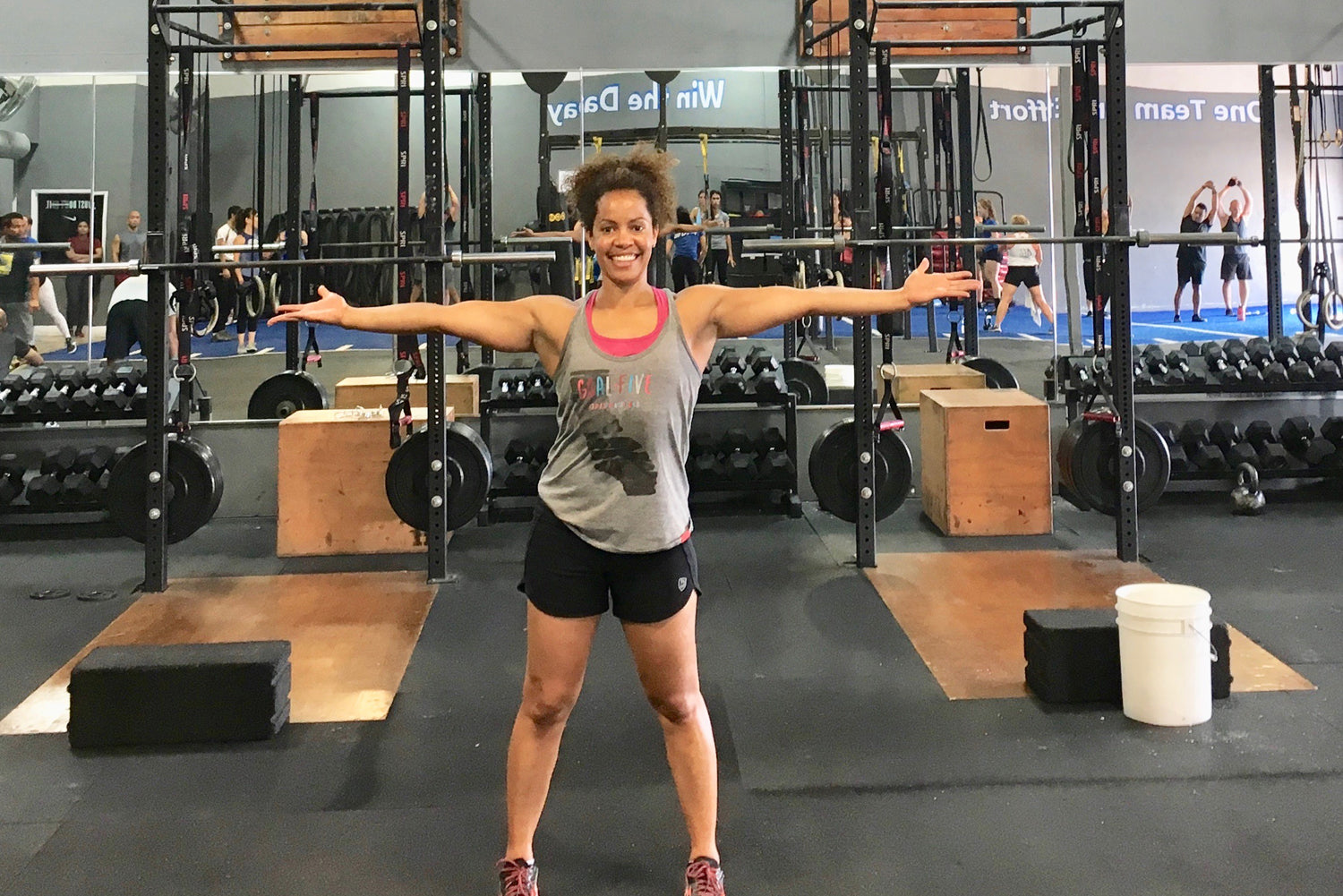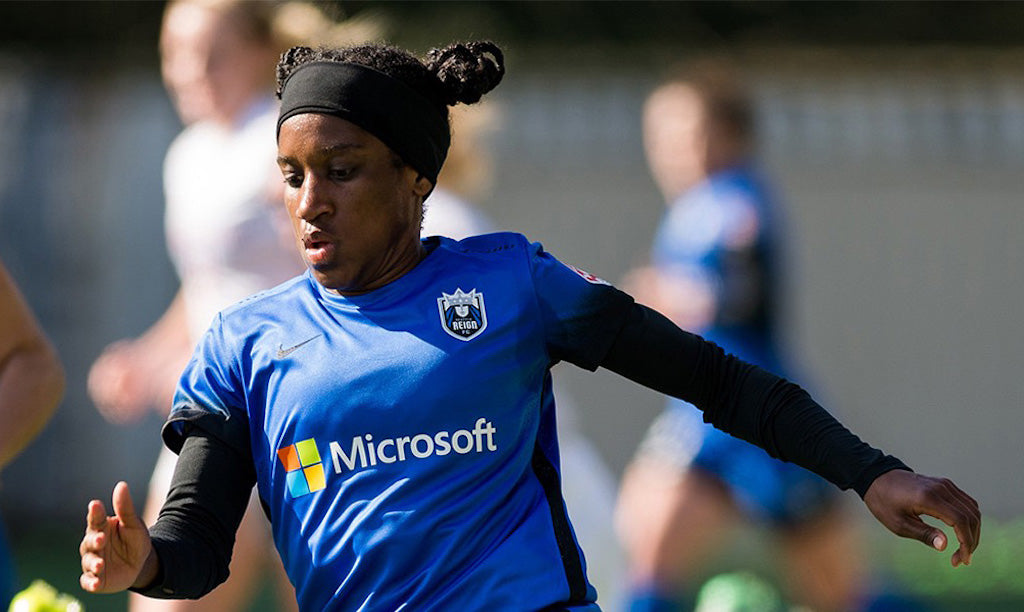Goal Five is excited to introduce you to our latest ambassador Hajra Khan, captain of the Pakistan National Team. Hajra discusses her role as a pioneer in women's football in Pakistan, as well as her drive to bring attention to mental health issues.
Tell us about the landscape of football in Pakistan.
In Pakistan, there is a general lack of support for girls who want to do more than just get married and become mothers. Football in Pakistan started in 2008 with an annual National Women’s Football Championship. As one of the pioneers of women's football in Pakistan over the past 10 years, I have witnessed an increase in the appeal and popularity of the sport among women and men alike. However, investments are necessary to uplift the game and officiating standards, as well as to increase publicity.
When did you start playing? What support did you have?
It was not until I was 14. I was preoccupied with basketball and track and field and my mother came across football tryouts in the local Sunday paper. She told me to give it a shot and convinced me to try out for the provincial team. During the trials, I was selected by a club and my football journey began.
I have had incredible support from my immediate family. They’ve always pushed me to achieve bigger things - not once did my parents try to stop me or oppress me because of my gender or age. But it wasn’t all perfect. My extended family initially had problems with my career choice but today everyone is proud of the success I have had.
How does it feel to be the only Pakistani player to score 100 goals? What does that mean to you?
I started playing football professionally at 14, became a top scorer the very first year, scored 103 goals in my club career and became the first Pakistani woman to make an appearance in Europe as a professional footballer. Sadly, I am still assailed with remarks about female fragility and doubts about how a woman could pursue a “man’s game”. It means a lot to me to challenge these stereotypes and I was recently honored to do just that by playing the world’s lowest-altitude football match on the shores of Jordan’s Dead Sea, 420m below sea level organized by Equal Playing Field.

What are your football goals?
I never want to settle. I want to use my achievements to be an outspoken advocate for the growth of the women's game in Pakistan. There is lack of opportunity for micro and youth football skill development, so I intend to launch a football training academy. It would be primarily geared at training female players at the grassroots level. The academy will also use football for development, working towards social inclusion of disabled youth into mainstream society, as well as empowering underserved children to become proactive leaders.
What is the biggest thing you have learned from playing the beautiful game?
I believe football has played a vital role in my personal development including respect for oneself and others, fairness, grace in defeat, humility in victory, and the virtue of self-denial.
I've learned to take a little more than my share of blame and a little less than my share of credit. It's helped me gain respect for my body and develop self-esteem, and to believe that I have everything I need within me to become the best possible version of myself. I've formed long lasting bonds and with the benefit of this personal development, have an urge to give back to broader social goals.

Tell us what you are developing for International Women’s Day next year.
My goal for International Women’s Day next year is to hold an International Women's All-stars Cup (IWAC) - a historic event - that will bring footballers from national teams around the world to train and play together in Pakistan. During the event, we will provide coaching and insight to younger aspiring female players and destigmatize issues around mental health for athletes. IWAC 2019 will be held from March 1st - 8th in Islamabad with the All-Stars Football Match taking place on March 8th - Women’s Day.
We will see players from France, England, Germany, United States, Bahrain, Jordan, Tanzania, Tunisia, Saudi Arabia as well as Pakistan come together - a historic feat in and of itself.
Why is it important to you to combat the stigma of mental illness?
Mental health has a stigma that is tied to weakness and is absolutely the antithesis of what athletes want to portray. The cause holds monumental meaning for me since I have been suffering from clinical depression and high functioning anxiety for some time. I strongly feel that athletes should not feel pressured into masking the problem and I realize that someone needs to stand up in order to make this happen. This has become my purpose. Football is just my platform. I have decided to passionately dedicate myself to eradicating the stigma surrounding mental health by raising awareness and improving care for those in need.
Tell us about working with Goal Five. Why did you come on board as a Goal Five Athlete?
I have just come on board as a Goal Five Athlete and am looking forward to what’s to come. The values Goal Five carries are very close to what I advocate for and hope together we can “Achieve equality and empower all women and girls.”
What’s one thing not many people know about you?
I am an introvert. As long as I have my imagination, and a wide slice of solitude once in a while - I’m content. I mean I get excited about cancelled plans, haha!
And what are your goals off the pitch?
I’ve never let sky be the limit for me and I never want to, literally! Off the pitch I’ve been carrying a dream to become a pilot and hope to make it come true real soon!
If you are interested in learning more about Hajra's fight against the stigma of mental illness, please watch her @tedtalks on athletes and mental health.
Photos of Hajra at Petra, Jordan courtesy of Equal Playing Field.




Leave a comment
This site is protected by hCaptcha and the hCaptcha Privacy Policy and Terms of Service apply.